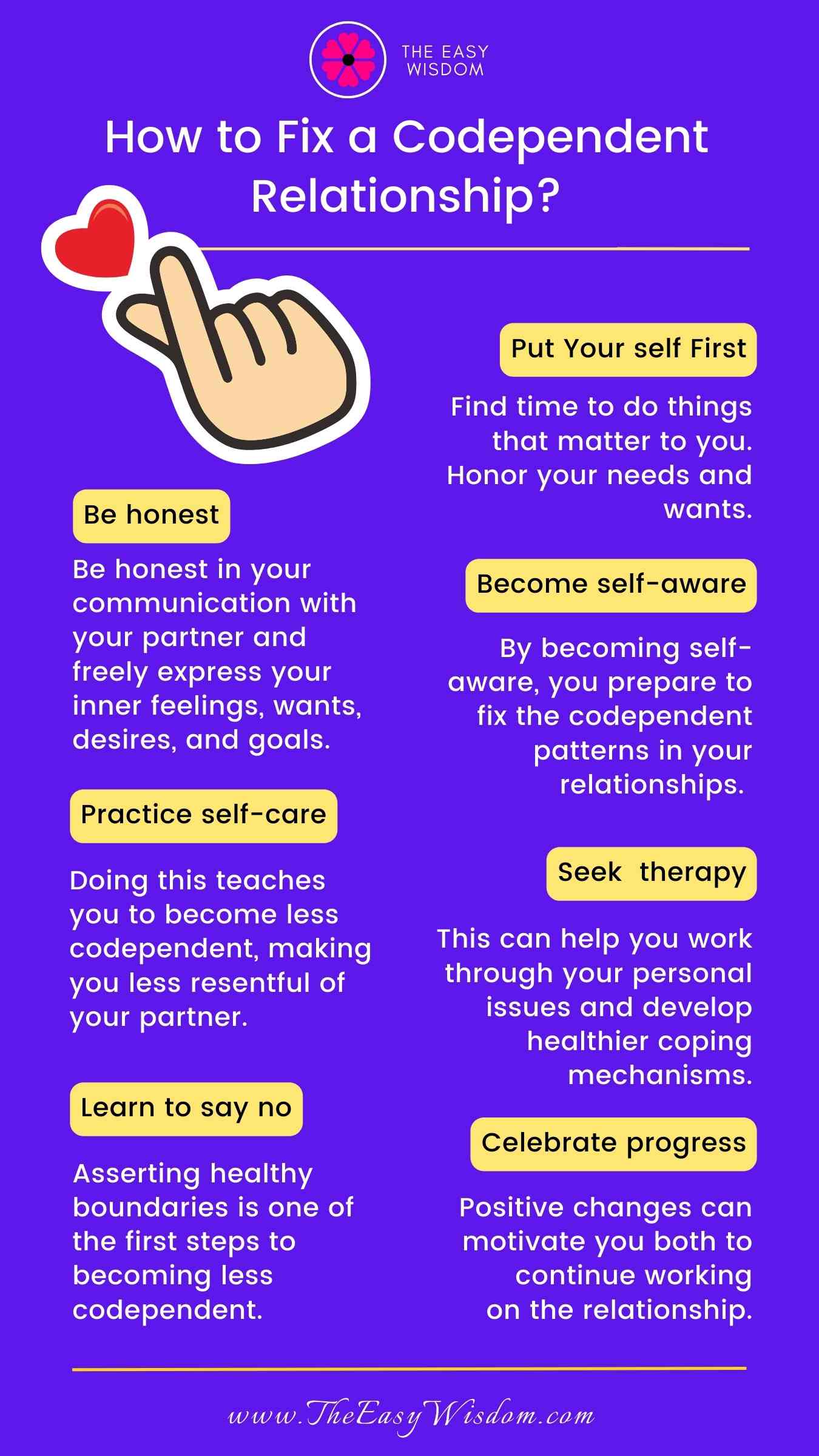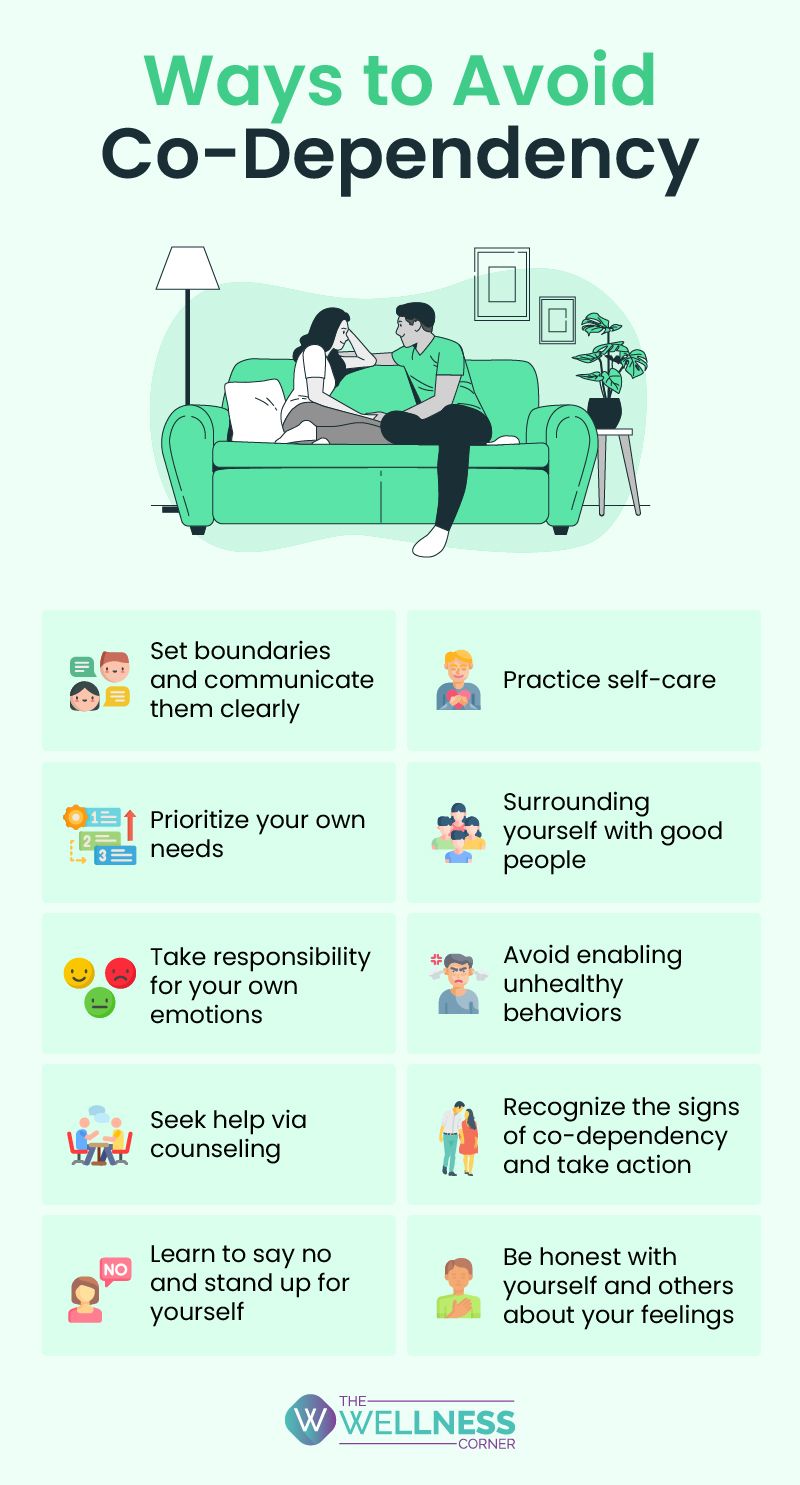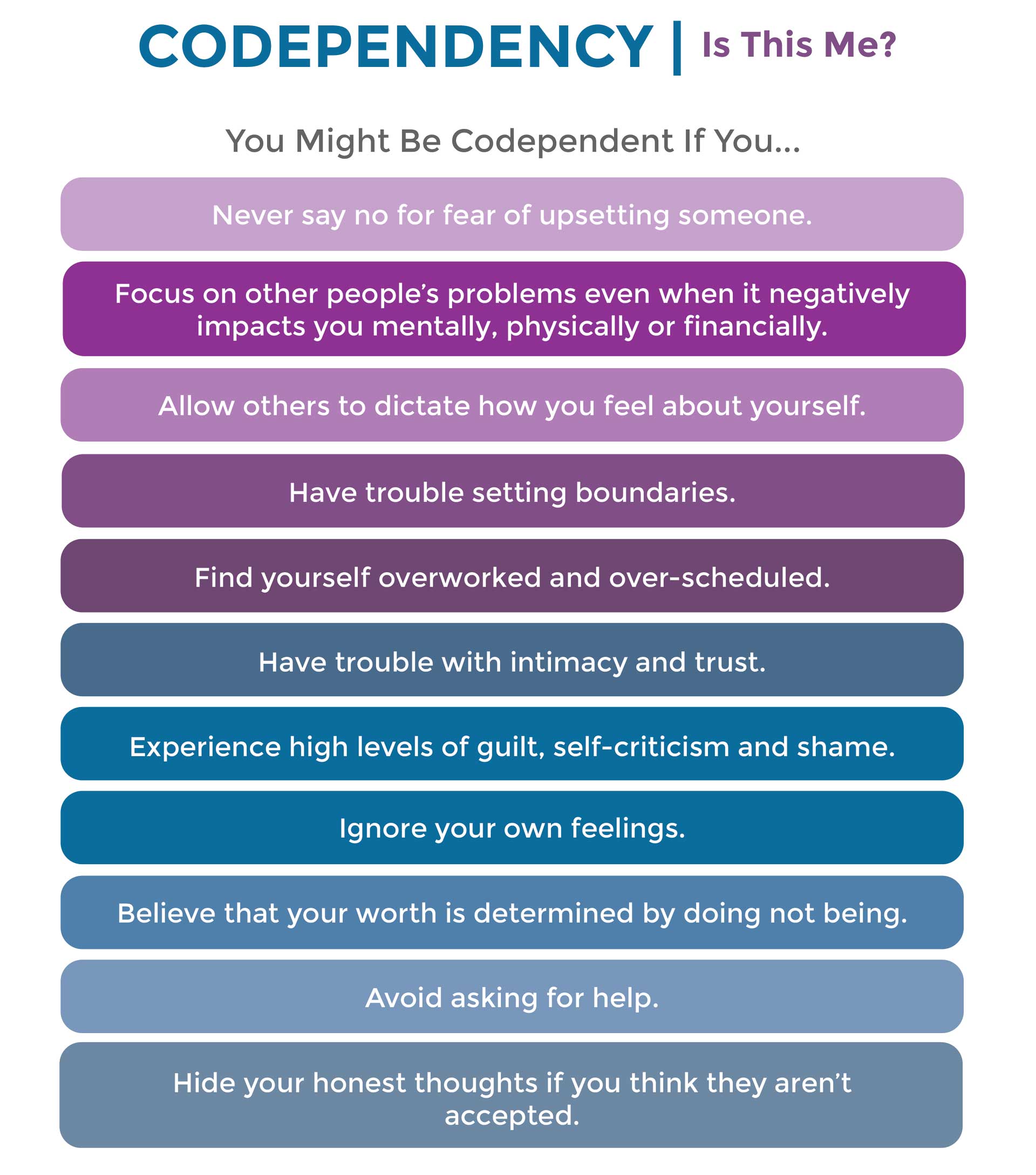
Understanding Codependency in Love
Definition of Codependency
Codependency is often misunderstood, but at its core, it refers to a relationship dynamic where one partner’s self-worth is heavily reliant on the approval and well-being of the other. This unhealthy attachment can manifest in various ways, causing individuals to prioritize their partner’s needs over their own, often to the detriment of their personal happiness. A common misconception is that codependency solely refers to romantic relationships; however, it can also occur in friendships and family dynamics.
Signs of Codependency in Relationships
Recognizing codependency is essential for creating healthier relationships. Look out for these signs:
- Excessive People-Pleasing: Constantly putting your partner’s needs before your own.
- Fear of Abandonment: An overwhelming anxiety that leads to clinging behavior.
- Difficulty Making Decisions: Relying on your partner for even minor choices.
- Lack of Boundaries: Allowing your partner to control aspects of your life.
- Emotional Volatility: Experiencing highs and lows based on your partner’s mood.
For instance, Sarah found herself feeling lost and insecure, as she always compromised her dreams for the sake of her partner’s goals. Such experiences signal a shift towards codependency and highlight the need for self-awareness and change.

Causes of Codependency
Childhood Trauma and Codependency
Childhood trauma plays a significant role in shaping codependent behaviors in adulthood. Children who grow up in environments where emotional needs are unmet or where they experience instability often learn to adapt by prioritizing others’ needs over their own. These early experiences can foster a belief that love is conditional, leading to patterns of codependency later in life.
For instance, Mark grew up in a household where his parents fought frequently. To maintain peace, he learned to suppress his feelings and cater to everyone else’s emotions. This behavior followed him into adulthood, creating a cycle of codependency in his relationships.
Low Self-Esteem and Codependent Behaviors
Low self-esteem is another driving force behind codependency. Individuals struggling with self-worth may feel that their value is tied to how much they can please others. This often results in detrimental behaviors:
- Constant Validation Seeking: Relying on a partner’s approval.
- Neglecting Self-Care: Ignoring personal needs to support a partner.
- Fear of Rejection: Avoiding conflict at all costs to maintain the relationship.
Consider Lisa, who often placed her partner’s comfort before her own, leading to burnout. Recognizing these root causes is the first step toward breaking free from codependent patterns.

Impact of Codependency on Relationships
Unhealthy Relationship Dynamics
Codependency creates a breeding ground for unhealthy dynamics within relationships. When one partner consistently prioritizes the other’s needs, it leads to an imbalance where one may feel more like a caretaker and the other a reliant child. This unequal power dynamic fosters resentment and prevents genuine emotional intimacy.
For example, Jane often found herself doing everything for her partner, from managing finances to planning their outings. Over time, this led to feelings of frustration, as she felt unappreciated and stifled.
Key indicators of unhealthy dynamics include:
- Emotional Venting: One partner may constantly seek emotional support, while the other feels overwhelmed.
- Control Issues: Attempts to influence each other’s decisions can arise.
- Avoidance of Conflict: Problems remain unaddressed, perpetuating ongoing issues.
Emotional Toll on Individuals
The emotional toll of codependency can be profound. Individuals often experience:
- Anxiety and Depression: The constant worry about their partner’s feelings can create significant stress.
- Loss of Identity: When wrapped up in caring for others, one may lose sight of personal interests and self-worth.
- Isolation: Friends and family may be unintentionally pushed away, leading to loneliness.
Mark and Lisa both noticed their happiness dwindling as they became more focused on each other’s needs rather than nurturing their own. Understanding the impact of codependency is vital to reclaiming a sense of self and building healthier relationships.

How to Avoid Codependency
Setting Boundaries in Relationships
Avoiding codependency requires clear and healthy boundaries within relationships. Boundaries help define where one person ends and another begins, preventing unhealthy dynamics from taking root. They ensure that each partner is responsible for their own emotions and needs.
To establish boundaries effectively, consider these steps:
- Communicate Openly: Discuss your feelings and needs with your partner.
- Be Assertive: Don’t shy away from saying no when necessary. For instance, if you’re exhausted but your partner wants you to help with a project, it’s perfectly okay to prioritize your well-being.
- Limit Emotional Responsibility: Understand that you can support your partner without fixing their problems.
Jessica learned this the hard way when her constant willingness to help her partner made her feel drained. After implementing boundaries, she found a newfound balance that allowed her to support him without sacrificing her own happiness.
Practicing Self-Care and Self-Compassion
In tandem with setting boundaries, practicing self-care and self-compassion is crucial to combatting codependent tendencies. It involves recognizing and prioritizing your own needs and treating yourself with kindness.
Ways to practice self-care include:
- Engaging in Hobbies: Focus on activities that bring you joy, such as painting or hiking.
- Setting Alone Time: Dedicate time each week to recharge, whether that’s reading a book or meditating.
- Positive Self-Talk: Replace negative thoughts with affirmations that reinforce your worth.
For example, Tom, who once neglected his own interests to please his partner, rediscovered joy by attending a weekly yoga class. By fostering self-care, individuals can cultivate a supportive relationship with themselves, ultimately enhancing their connections with others.

Seeking Professional Help
Therapy for Codependency
When self-help strategies aren’t enough, seeking professional therapy can be a transformative step in overcoming codependency. Therapy offers a safe space to explore underlying issues and develop healthier relationship patterns.
Cognitive Behavioral Therapy (CBT) is particularly effective. It helps individuals identify negative thought patterns and replace them with healthier perspectives. Moreover, a therapist can guide clients in:
- Recognizing Triggers: Identifying moments that provoke codependent behavior.
- Developing Coping Strategies: Introducing healthy ways to manage emotions and relationships.
- Improving Communication Skills: Learning how to assertively express needs without fear.
For instance, Lisa found that regular sessions with her therapist helped her articulate boundaries that she had previously struggled to set.
Support Groups and Resources
In addition to therapy, support groups provide a sense of community and understanding for individuals grappling with codependency.
Here are some valuable resources:
- Codependents Anonymous (CoDA): A 12-step program that fosters recovery through peer support.
- Online Forums: Platforms like Reddit or specialized websites where individuals share experiences and advice.
- Books: Titles such as “Codependent No More” by Melody Beattie offer insights and strategies for recovery.
Emily joined a local CoDA group and found strength in the shared experiences of others, igniting her journey towards healthier relationships. Engaging in these resources significantly enhances personal growth, promoting a more fulfilling life.

Building Healthy Relationships
Communication and Assertiveness Skills
To build healthy relationships, honing communication and assertiveness skills is critical. Effective communication involves not just speaking but also listening with empathy and understanding. Assertiveness helps individuals express their needs without being aggressive or passive.
Here are some strategies to enhance these skills:
- Use “I” Statements: For example, instead of saying “You never listen to me,” try “I feel unheard when we don’t share our thoughts.” This shifts the focus towards your feelings, minimizing defensiveness.
- Practice Active Listening: Show your partner you value their perspective by summarizing what they say and asking clarifying questions.
- Be Open to Feedback: Embrace constructive criticism as an opportunity for growth.
Tom found that implementing these techniques with his girlfriend changed their dynamic completely. They began addressing issues calmly, cultivating a deeper connection.
Balancing Independence and Interdependence
Striking a balance between independence and interdependence is vital for thriving relationships. Independence fosters personal growth, while interdependence encourages mutual support.
To achieve this balance, consider:
- Encouraging Individual Pursuits: Both partners should engage in hobbies and friendships outside of the relationship.
- Supporting Each Other’s Goals: Celebrate achievements, whether big or small, emphasizing that your partner’s success is encouraging, not threatening.
- Understanding Each Other’s Needs: Regularly check in with one another to ensure both partners feel fulfilled and connected.
Jessica learned to embrace her passions while being supportive of her partner’s career, creating a partnership that thrived on both independence and connection. Building a healthy relationship is a journey that rewards patience, openness, and commitment.
